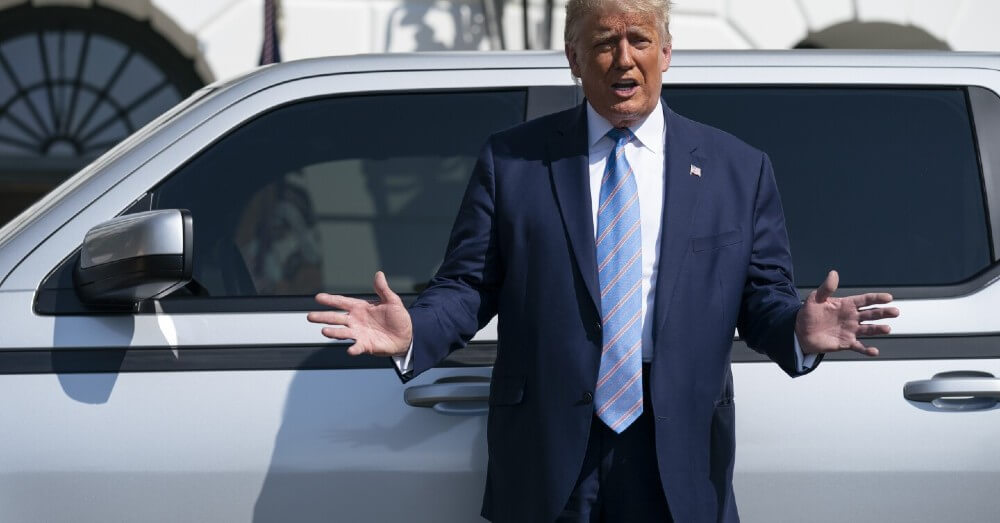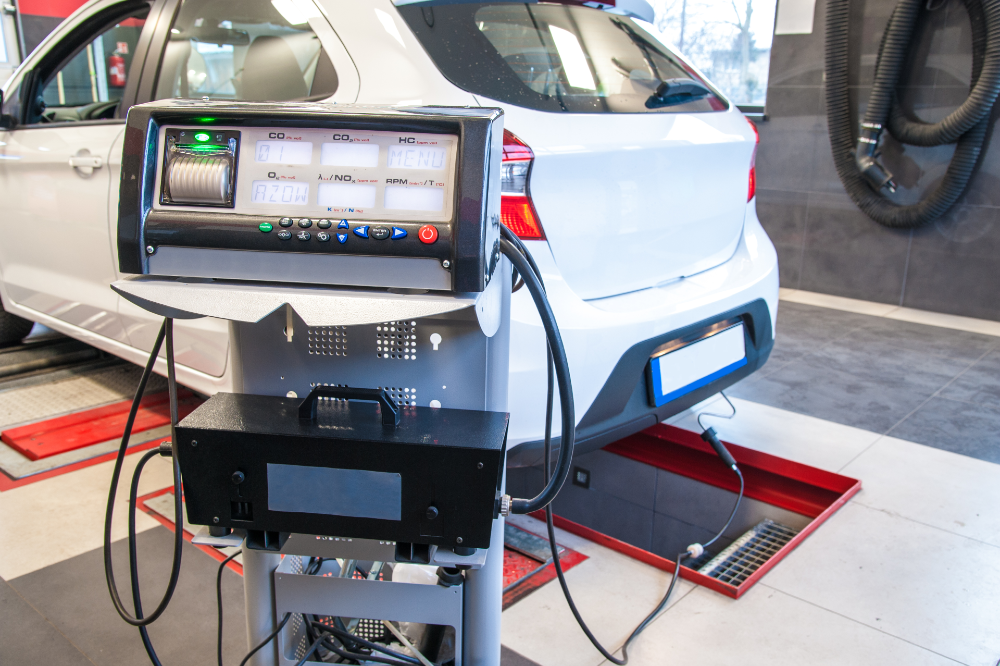
Car Companies to Trump: Those Biden Emission Rules Are Way Too Tough
Recent changes in the automotive market have seen many Biden-era emissions standards rolled back to make goals more achievable for automakers.
Major automakers, including GM, Toyota, and Volkswagen, are asking the Trump administration to roll back the aggressive tailpipe emissions rules set under Biden, arguing the standards are “simply not achievable” given current market conditions and stalled EV demand. The Alliance for Automotive Innovation says the Biden-era rules relied on overly optimistic predictions about electric vehicle adoption. With Trump’s EPA already moving to gut climate regulations, automakers and environmentalists on a collision course regarding the future of car emissions.
EVs were meant to make a difference
Regardless of how you feel about either President, it’s easy to see how they are diametrically opposed, especially in the automotive world. Automakers asked for EPA emissions standards to roll back when the EV market slowed and has continued to slow into the Trump administration. The electric vehicle mandate repeal and cancellation of the Federal EV tax credit create an environment in which automakers cannot meet the Biden-era emissions standards, which caused many automakers to ask for industry policy changes to avoid paying massive fines for missing standards.
Without EVs the targets are impossible
Many car manufacturers have been lobbying for reduced emissions standards, but the troubles began before Trump put new EPA vehicle regulations into action. Had EVs continued to sell at the same pace they were in 2022 and 2023, many automakers wouldn’t have bothered complaining because they were building new electric vehicles. The slowing of sales has caused many automakers to roll back their EV plans for the near future. The Alliance for Automotive Innovation predicts a market problem if automakers were held to the stricter Biden emissions standards, which require a rollback to help these automakers.
What has Trump done to roll back some of the Biden-era emissions and soften the climate for automakers? Here are a few answers:
Revoked the EV target
Although the EV target of 50% all-electric vehicles sold by 2030 was non-binding under the Biden administration, it only took Trump one day to revoke this executive order. This means automakers won’t be held to this standard, and the money that was expected to be disbursed for charging-station infrastructure was immediately frozen.
Proposed rescinding 2009 “Endangerment Finding”
A proposal was put in place to reduce tailpipe pollution standards and rescinding a finding that greenhouse gasses, expelled from the tailpipe of vehicles are harmful to people. This would chang the greenhouse gas emissions rules for the time being, which could be extremely harmful to the atmosphere, but would soften the restrictions that automakers deal with when building vehicles that expel lower emissions.
Removing California as a leader
Under the Biden administration, California’s leadership in the zero-emissions charge was renewed, but part of Trump’s end to the Biden-era emissions standards includes a rollback of this leadership for California. Trump revoked California’s authority to enforce stricter vehicle emissions, including state-wide mandates for phasing out new gas-powered vehicles by 2035.
EV tax credit ends
Part of the Inflation Reduction Act that was put into law under Biden are the rules for the Federal EV Tax Credit of $7,500 per electric vehicle. Part of rolling back the standards set by his predecessor, Trump and Congress put an end to this tax credit in the BBBA, which was singed into law in July. This credit ends on September 30, 2025, instead of in 2032, which was the original expiration under Biden.
Reverting to pre-2021 environmental rules
Trump granted regulatory relief and exemptions for coal, iron ore, and chemical manufacturing, which are tied to the automotive industry in various ways. This is another example of a Biden-era emissions standards rollback, changing the rules that were in place and easing regulatory pressure on emissions. This change also reduces constraints on upstream pollution, which can impact more than just the atmosphere but also waterways.
Removed penalties for automakers failing to meet standards
Automakers that didn’t meet emissions and efficiency standards were required to pay fines and penalties, which is a huge part of what automakers were complaining about. Trump has effectively removed these penalties, making it easier for automakers to avoid costly fines and penalties for not meeting these standards.
Automakers are getting what they asked for with the Biden-era emissions standards rollback and changes that allow them to relax a little. These changes that Trump has put in place, could ultimately be harmful to the environment, but for now, automakers can breathe a sigh of relief.
This post may contain affiliate links. Meaning a commission is given should you decide to make a purchase through these links, at no cost to you. All products shown are researched and tested to give an accurate review for you.



